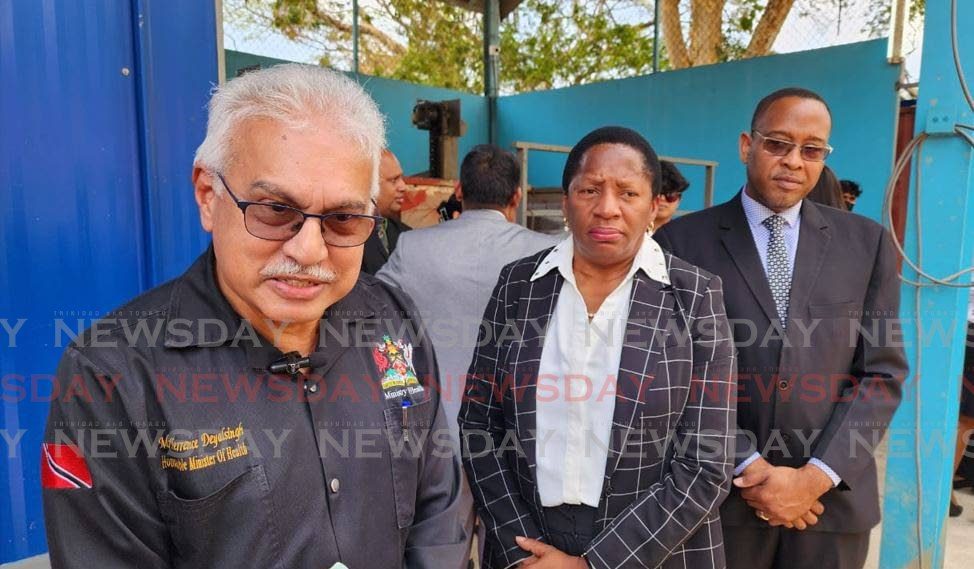Sterilisation machine to replace incinerator at San Fernando hospital

The handover ceremony of an autoclave unit worth US $220,000 (about TT$ 1.4 million) at the San Fernando Teaching Hospital was more than just transferring a piece of equipment.
Planning and Development Minister Pennelope Beckles considered it a manifestation of progress, continued commitment to safety and efficiency, a shared vision and the protection of human health and the environment.
The pre-vacuum, fully automated unit can treat 1.8 tonnes of medical waste daily on an eight-hour working shift. It has a capacity of 1,500 litres per cycle.
The minister said, "This autoclave is not just a machine. It is a catalyst for progress, a facilitator of our mission of safeguarding human health and the environment as a focal point of the Stockholm Convention not only directly fulfiling the project objectives, but by extension, the country's obligation under the convention."
The ceremony took place at the Teaching Hospital, and the autoclave is at the San Fernando General Hospital, near the entrance to Lady Hailes Avenue.
The minister said March 25's ceremony was intentionally timed to commemorate the International Day of Zero Waste, which is observed on March 30.
It aims to remind people of the urgent need to rethink their approach to waste management and embrace innovative solutions that minimise their environmental footprint.
Beckles said sterilisation through an autoclave effectively destroyed bacteria, viruses, and other pathogens, rendering the waste safe for disposal.
"Autoclaving offers a safer, more environmentally responsible alternative for managing medical waste, aligning the principles of sustainability and responsible resource management," Beckles said.
"In a world increasingly conscious of health and safety, the significance of such devices cannot be overstated. As we celebrate this achievement, let us not forget the purpose behind it. Our work is not defined by the equipment we possess but rather by the impact we make on the lives we touch and the standards we set."
The handover was provided through the Global Environment Facility (GEF) Project, Development and Implementation of a Sustainable Management Mechanism for POPs (persistent organic pollutants) in the Caribbean.
It was implemented by the UN Industrial Development Organization and executed by the Basel Convention Regional Centre (BCRC) for Training and Technology Transfer in the Caribbean.
The facility was commissioned in November 2022 and the equipment was donated to the Ministry of Health via the Stockholm Convention Focal Point.
Beckles recalled that Trinidad and Tobago was one of three Caribbean countries selected to participate in a pilot project to replace precarious medical waste incinerators with autoclave units.
This subproject aimed at reducing unintentionally produced POPs (UPOPs) emissions by replacing precarious medical waste incinerators with autoclave units in the participating countries.
Beckles said UPOPs accounted for the highest quantity of POPs in the country.
"POPs are toxic chemicals that persist in the environment for long periods, accumulating in the food chain and causing significant risks to human health and the environment. These pollutants are often by-products of industrial POP products, agricultural activities, as well as waste incineration," Beckles said.
"Emissions for waste incinerators were among the top three activities within the country contributing to the total POPs released."
Health Minister Terrence Deyalsingh, South-West Regional Health Authority CEO Dr Brian Amour, BCRC director Jewel Batchasingh and other officials also attended.


Comments
"Sterilisation machine to replace incinerator at San Fernando hospital"